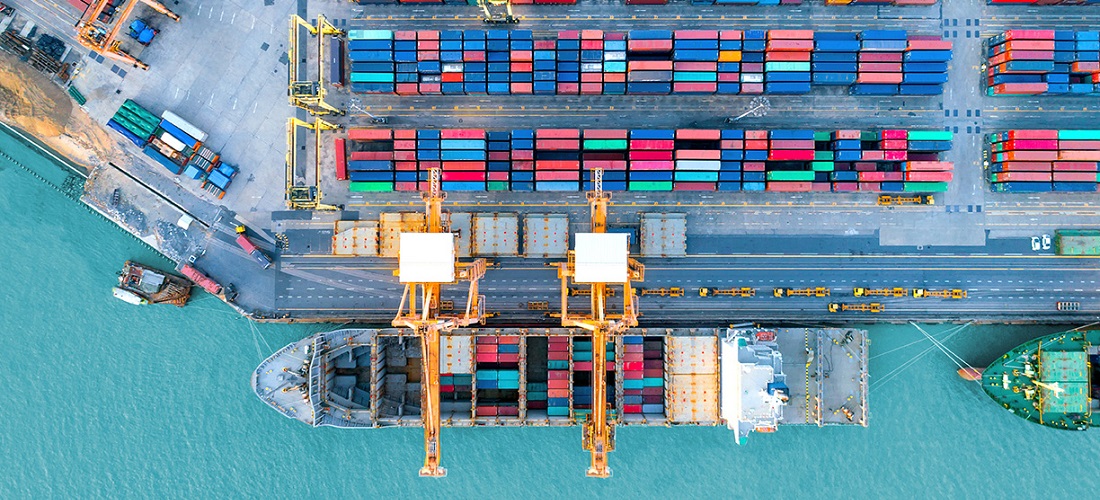
Brazil expands exports to Asia beyond China
Jul, 24, 2023 Posted by Lillian SmoakWeek 202331
Brazil is gradually discovering Asia beyond China, in trade. For starters, ASEAN countries: exports to Brunei, Cambodia, Philippines, Indonesia, Laos, Malaysia, Myanmar, Singapore, Thailand and Vietnam were US$ 12.1 billion in the first half of 2023, compared to US$ 4.5 billion in the period, in 2018.
Comparison by country is also significant. Sales to Singapore, at the heart of ASEAN (Association of Southeast Asian Nations), were US$4.4 billion in the first half of 2023 (US$1.1 billion in 2018). As for Germany, the engine of the European Union, sales were US$ 2.9 billion (US$ 2.5 billion in 2018).
“It is very important to see Asia beyond China”, says Tatiana Prazeres, secretary of Foreign Trade at the Ministry of Development, Industry, Commerce and Services.
“When we look at Asia as a whole, China’s superlative numbers eclipse other markets that are increasingly relevant to Brazil and the world.”
Until 2021, considering the first semesters, China represented 70% of Brazilian exports to Asia, she says. In 2022 and 2023, also in the first semesters, it was slightly below, at 65.9% and 67.9%, respectively, with Singapore, Thailand and Indonesia growing at rates higher than China’s.
The case of Singapore is partly explained by the export of a specific product, “bunker”, fuel oil for ships. It is the largest supply port in the world, with more than 130,000 ships entering and leaving each year, and Brazilian fuel ended up being favored by a new specification.
But in the first half of this year, “bunker” exports even dropped in value, while sales advanced on several other fronts: crude oil, meat, machinery and equipment, coffee, iron ore and steel products.
“It is not possible to identify the percentage of sales that are consumed in Singapore”, says Prazeres. “The country is strategically positioned, which allows the port to be a distribution center for the region, with goods being unloaded from ships and forwarded to other destinations across Asia.”
She stresses that Mercosur and Singapore are currently negotiating a trade agreement. “It would be a gateway to expanding the Brazilian presence in this region, which is very dynamic,” she says. “It is fundamental that more Brazilian companies include Asia in their plans.”
For economist Marcos Troyjo, former Secretary of Foreign Trade at the Ministry of Economy (2019-20), geopolitical and economic developments such as the rise in per capita GDP in high-population Asian countries such as Indonesia, in addition to India and China itself, “are creating enormous opportunities for Brazil”.
“With Asia assuming more and more the role of epicenter of the global economy, trade with Brazil will only tend to grow”, says he, also former president of the New Development Bank (Banco do BRICS), in Shanghai.
Troyjo underlines that in the last year the proportion of the Brazilian GDP linked to foreign trade surpassed 35%. “The redirection of global value chains”, he adds, not only due to geopolitical changes but due to possible trade agreements and the acceleration of reforms, opens up an “excellent” panorama, as he describes it, for the Brazilian economy.
He warns, however, that “these great prospects could be put at risk if an undesirable combination of stagnation of reforms and immediacy of policies aimed at the next electoral cycles takes place”.
Troyjo also says that, “in a global context in which food and energy security have become paramount, infrastructure gaps in Brazil are no longer a domestic challenge” but are to become a global issue.
Compared to Asean and Asia as a whole, trade with Europe progresses more slowly, as shown by the contrast in exports to Singapore and Germany, emphasized by Troyjo.
For Prazeres, “as the EU has a mature economy, imports from the bloc are not expected to show great growth, but, despite being less dynamic, the market continues to be highly significant”.
He notes the jump in Brazilian crude oil exports last year, which may have been influenced by the war, and assesses that the Brazil-EU trade agreement would make sales more competitive —in addition to favoring investments and partnerships between the regions, which would stimulate trade flows.
Economist Karin Costa Vazquez, of the Center for China and Globalization in Beijing and professor at O.P. Jindal Global University, in India, notes that “Asian markets are expanding”, hence the contrast with Europe, and warns of future problems, with or without the Brazil-EU agreement.
“The CBAM [mechanism for controlling carbon emissions at the border] could be a major obstacle for Brazil and the EU,” she says, referring to the tariff approved in May by the European Parliament and which will come into effect in three years.
She has defended that the new Brazilian government brings Mercosur closer to Asean, especially Indonesia and Vietnam, and other Asian giants like India, expanding the lists of products and the level of mutually granted preferences.
Source: Folha de S. Paulo
To read the original article, visit: https://www1.folha.uol.com.br/mercado/2023/07/brasil-amplia-exportacoes-para-a-asia-alem-da-china.shtml
-
Grains
Mar, 11, 2024
0
Argentina’s planned corn shipments hit five-year high -exchange
-
Ports and Terminals
Sep, 05, 2024
0
São Francisco do Sul Port to Implement New Docking Rules Following Delay Complaints
-
Ports and Terminals
Mar, 11, 2024
0
Government announces R$10bn plan for Port of Santos
-
Ports and Terminals
Aug, 15, 2019
0
Alcântara might receive Brazil’s largest multimodal port

